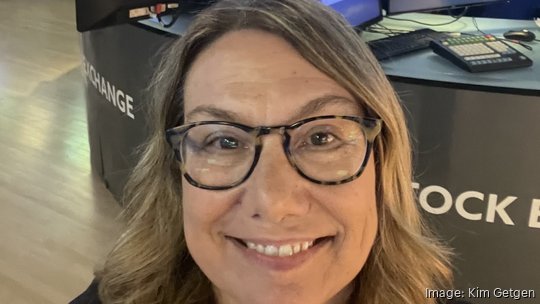
Armed with an “Underdog” T-shirt, Kim Getgen is going all in with her startup, InnovationForce.
She sold her car and moved in with her parents to stay lean. Failure, she said, is not an option.
It’s a critical time for InnovationForce, which has an office in Durham and is on the cusp of securing the customers needed to prove its concept. But customer acquisition takes money – and that's something startups across the globe are struggling with, according to new data on venture capital.
Across the globe, venture capitalists are funding fewer startups – particularly when it comes to early-stage companies like InnovationForce. Recent data out of research firm PitchBook shows investors financed just over 3,000 startup funding deals in the second quarter in the U.S., about a third fewer than the same period a year ago. And they spent less, at about $39.8 billion – down nearly half from last year.

For Getgen, it translates into the tightest fundraising environment she's experienced as an entrepreneur.
InnovationForce is a SaaS platform that aims to automate “the art of innovating” into a repeatable process.
The company was a “Covid baby,” founded out of Portland General Electric in Oregon where Getgen was working as a consultant for an innovation lab. At the utility company, Getgen put in place a standardized process for innovating that she’d been using throughout her career. It was about “moving innovative ideas through the funnel,” she said. And it started to work – so much so that others took notice, such as the Electric Power Research Institute in Charlotte.
So Getgen decided to take the leap and turn her process into a company, cofounding it with Arizona-based Ivan Aguilar as CTO.
And elements were lining up in her favor. At the get-go, Getgen had a customer in Portland General Electric – the perfect way to prototype the first version of the product. And EPRI too, got behind the effort.
Add in her business professor from Harvard, Linda Hill, who joined as a co-founder, and Getgen said she’s never felt so good about a startup’s future.
Earlier this year, the firm started its first financing round.
“Here I am, a post-revenue company with serious customers in the utility space … and I was having a hard time finding professional investors,” she said.
PitchBook data shows angel investing is down too.
Angel or seed deals – which finance early-stage startups, amounted to about half last year’s count. That has put early-stage companies like InnovationForce in a precarious position.
Getgen took a pivot. Instead of targeting institutional investors, she mined her own network for a friends and family round. That included support from her own network at Harvard Business School. The goal is $1 million, she said. Securities filings show the firm has closed about $53,000 of the sum so far from four investors (the SEC filing targets the raise at $500,000).
Getgen said the elements for success are there. The firm has two utility firms trying its product, and eight in a cohort giving feedback. But converting customers to real annual recurring revenue requires success in fundraising.
Getgen has bootstrapped the company to date – going all in on her entrepreneurial dream by moving in with her retired parents, selling her precious Land Rover and foregoing a salary for two years.
“I’m taking this big leap because it’s something that I think is not only going to be a big business opportunity … but it’s also good for the planet,” she said.